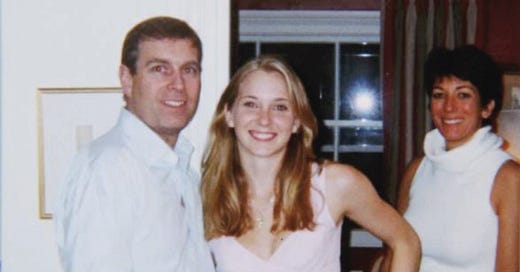Most civil claims are settled or abandoned without the need for a hearing. Even though the timing of this one may have been unexpected, it is no surprise that Virginia Giuffre and Prince Andrew have reached an out-of-court settlement.
Those who regard litigation as a spectator sport have expressed their disappointment. Those who understand that bringing …
Keep reading with a 7-day free trial
Subscribe to A Lawyer Writes to keep reading this post and get 7 days of free access to the full post archives.



